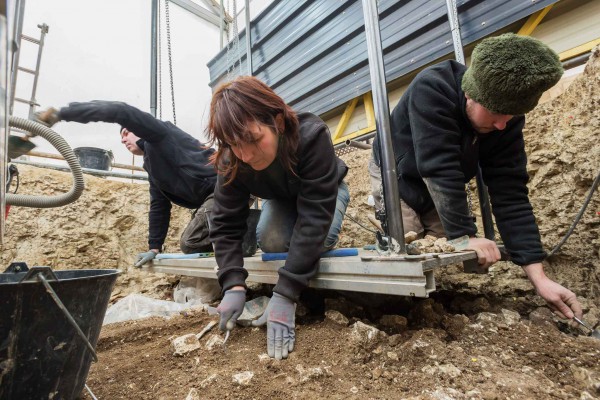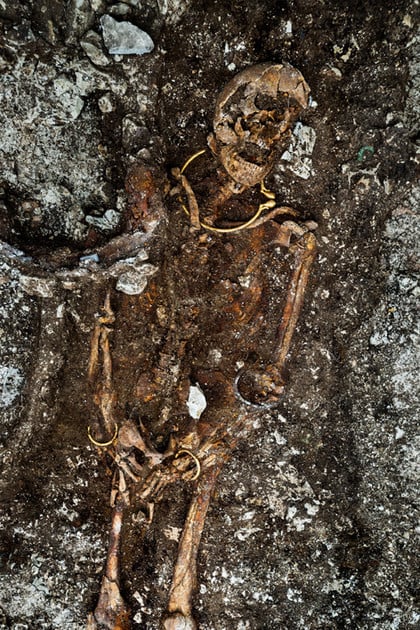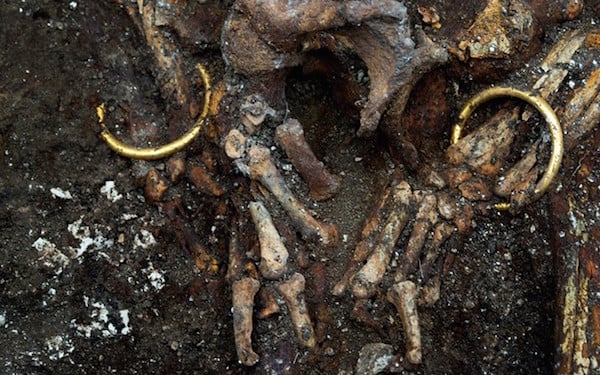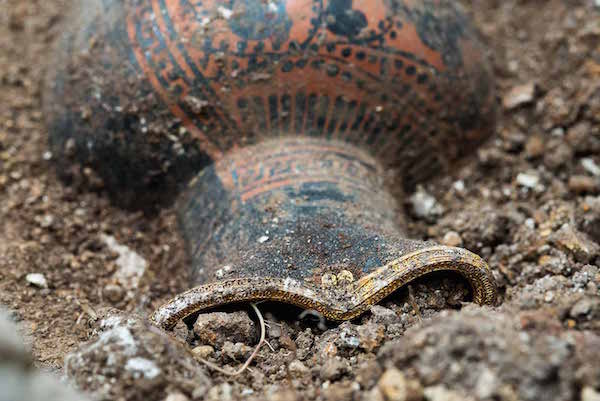Art World
Magnificent Royal Celtic Tomb Discovered in France


Henri Neuendorf


The skeleton is believed to be the remains of a royal Celtic prince or princess
Photo: Denis Gilksman via INRAP
Archaeologists have uncovered an extraordinary 2,500 year-old grave of a Celtic royal outside the town of Lavau in north-central France.
The team has not yet been able to determine the gender of the inhumed individual, but the luxurious jewelry and artifacts that the person was buried with indicates that the tomb belonged to a member of the Celtic royal family.

The individual was buried wearing golden jewelry
Photo: Denis Gilksman via INRAP
The skeleton was buried with a two-wheeled chariot, and was discovered wearing a 580g (1.2 lbs) decorated golden torque around its neck and two golden bracelets on its wrists. A sheathed sword discovered nearby suggests that the person may have been a warrior or soldier.
Bastien Dubuis, chief archaeologist in charge of the excavation told the Daily Mail, “The presence of a chariot, a cauldron and bronze crockery are three typical characteristics of a princely tomb from this period. They’re well-documented funerary objects, objects of prestige. They were used in religious ceremonies and as a way to show off the power of the elite.”

The tomb contained lavish Greek vases indicating the wealth of the buried individual
Photo: Denis Gilksman via INRAP
A statement from the National Archaeological Research Institute in France (INRAP) announced “The tomb contains funerary deposits worthy of the highest wealthy Hallstatt elites,” referring to the Hallstatt Celts, a culture that emerged in the Iron Age and spread across northern Europe.
The statement also explained, “The poor state of preservation of the bones means it is not yet possible to determine with certainty the sex of the individual.”